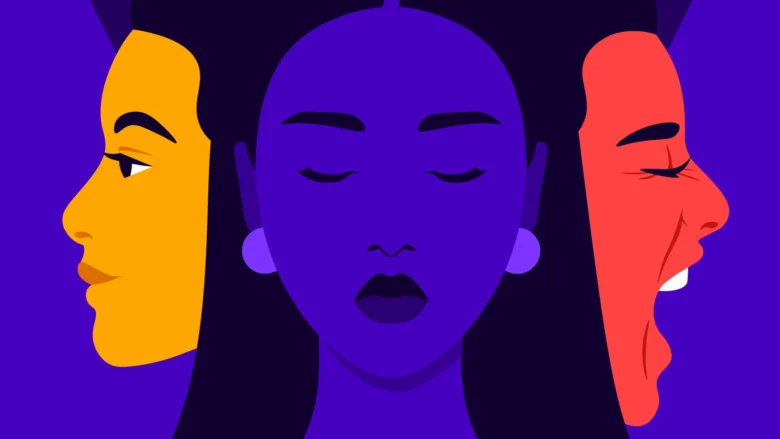Did anyone advise you to take therapy? Did you take it as an insult? Or consider the option logically? Even though many people take therapy for various reasons, the stigma around it is still there. And the thought process that happy people don’t need therapy is still there. But it isn’t true. Neither the stigma around it nor the idea that happy people don’t benefit from therapy exists.
The truth is that everyone requires mental stability along with physical fitness to be healthy. So if you have a lot on your mind, therapy is helpful. Moreover, people who aren’t going through life-changing problems or depression also need someone to listen without judgement. Thus, therapy is for everyone. If you aren’t sure why you need therapy, read on.
Contents
- You get unbiased advice
- It helps you discover hidden issues
- It helps you break bad, repeating patterns
- It helps you accept your emotions
- It helps you get peace of mind
- It helps you develop better relationships
- They offer a sympathetic ear and a challenge
- It may alleviate your physical symptoms
- Signs you undoubtedly need therapy
You get unbiased advice
When you need advice, you turn to your family and friends. It is healthy, as everyone needs a group of people who support and advise them. However, they are usually emotionally attached to the situation, or at least to you. So, their advice might be biased. Therapy can provide unsolicited and unbiased advice. They look at the problems logically and understand all aspects before giving you advice. Therapists at Life Supports Counseling can help look at the bigger picture and create strategies that work.

Source: verywellmind.com
On the surface, everything seems well. You may think you know yourself well enough. However, sometimes there are issues so well hidden that you cannot figure them out yourself. In such cases, you need help. A therapist digs out the hidden issues through questions, prodding, and letting you self-inspect. For instance, you may think you are a stressor. But through therapy, you might understand that stress is a generalized anxiety disorder. When you know the issue, you can manage it better for a healthy life.
It helps you break bad, repeating patterns
You, like every other human, are creatures of habit. You follow a set routine, like eating breakfast at the same time. Taking the same route to work and more. And that’s good. Having a repeating pattern or routine helps navigate life better. But sometimes, these habits are not good for you. For instance, if you constantly date the same type of people as your pattern and end up heartbroken, you need to change it. Some people always date toxic or abusive people. It is because it is a repeating pattern in their lives. With therapy, you can understand why you follow this repetitive pattern. It helps you break the pattern and find a relationship that is better for you. It applies to many things, like eating food that is bad for you. It happens due to a toxic relationship with food. A certified therapist can help with all of them.
It helps you accept your emotions
Therapy’s goal isn’t to give you endless bliss. Its goal is to help you understand your emotions and why they are the way they are. It helps you sit down and accept your feelings and emotions. When you do this, you make better decisions for yourself. Once you start doing this, you automatically become happier. Remember, happiness doesn’t mean you won’t face sadness or anger.

Source: self.com
It helps you get peace of mind
As mentioned above, therapy benefits everyone. Even if you don’t have any negativity, anxiety, or stress right now, the future is unseen. Therefore, you may deal with negative or stressful situations in the future. With therapy, you get an idea of how to manage these situations and identify your triggers without letting these situations overtake your life.
It helps you develop better relationships
Whether it is friendship, a relationship with the opposite gender, or family, things can change. When things change, relationships change too. It can lead to problems or tensions. Sure, you can ask your other friend or family for advice. But as mentioned above, they might not give you neutral advice. A therapist, on the other hand, is neutral. Also, he/she isn’t emotionally attached to you. Therefore, they can help you put yourself in the shoes of others. It allows you to understand where the other person is coming from. Thus, therapy can help you build better relationships with people.
They offer a sympathetic ear and a challenge
Even happy people need someone who can listen to them. Whether it is a rant or just to get the frustration out due to a bad day. Therapy is best if you want a safe space where no one judges you. A therapist offers you a sympathetic ear and will listen to everything you have to say. There is no judgment. But the best part is that they will also challenge you and your thoughts. They will make you squirm, and you may be in discomfort. But they will continue to do so as long as it helps you understand why you feel the way you do. All this helps you introspect and determine what part you are playing in the scenario. It helps you make better decisions and choices.

Source: sondermind.com
It may alleviate your physical symptoms
Do you know hidden anxiety, depression, OCD, and other issues can cause physical symptoms? For example, anxiety or depression can cause headaches, stomach issues, hormonal imbalances, and more. Therapy and determining the reason for depression or anxiety help overcome these symptoms.
Signs you undoubtedly need therapy
Some people unquestionably require therapy for a variety of reasons. So if you see the below-mentioned signs, think about taking therapy.
- A situation or person is causing you distress.
- If you feel anxious, overwhelmed, or fatigued.
- Losing interest in things or activities, you once felt good about
- Withdrawing from social activities. Feeling the need to distance yourself from people and social situations.
- A situation or thing has affected you negatively. And you have formed bad habits or addictions to cope with them.
From mental issues to chronic stress to only improving your quality of life, therapy may benefit everyone. You do need commitment, though. If you are not consistent, it might not help you. Also, go to therapy when you want and not when you should. When you willingly accept this, you will see better results.
